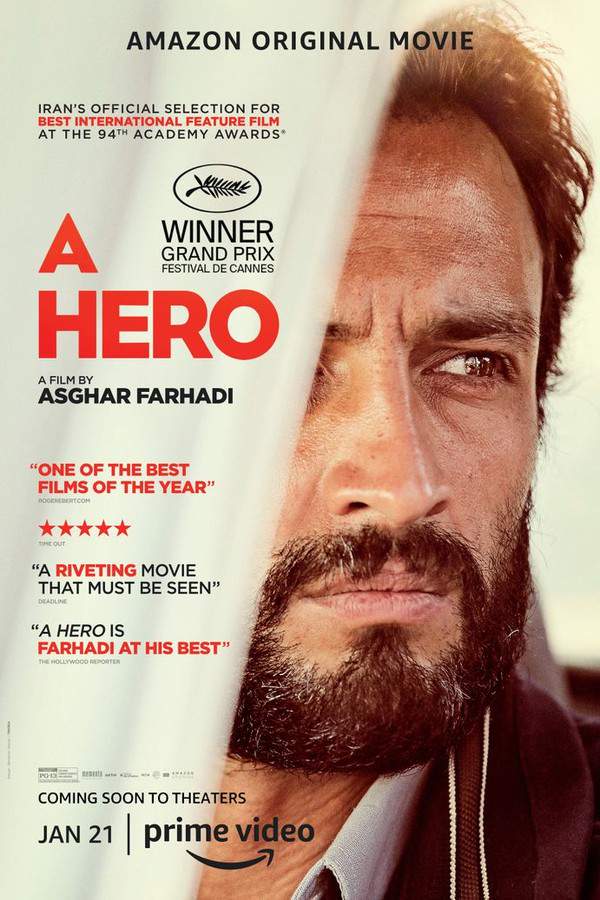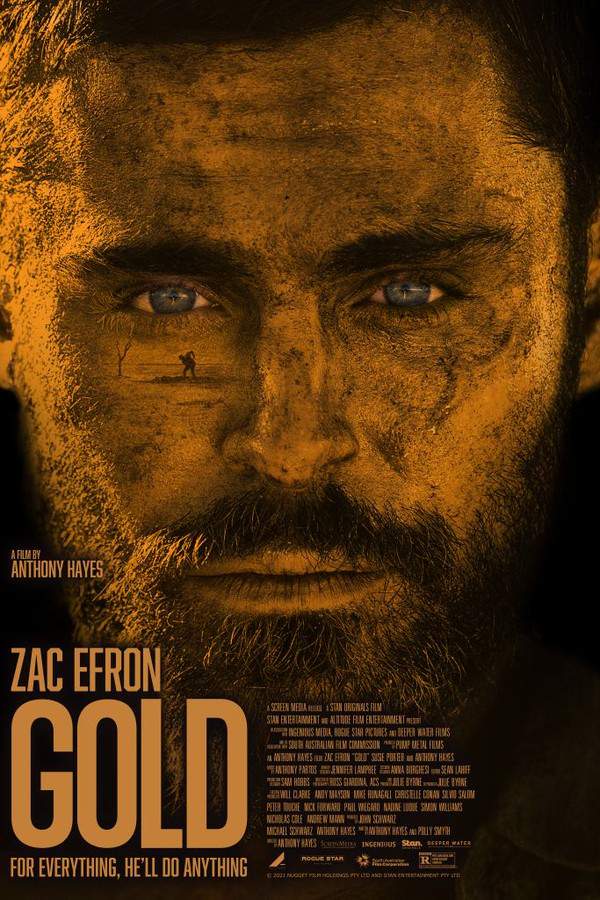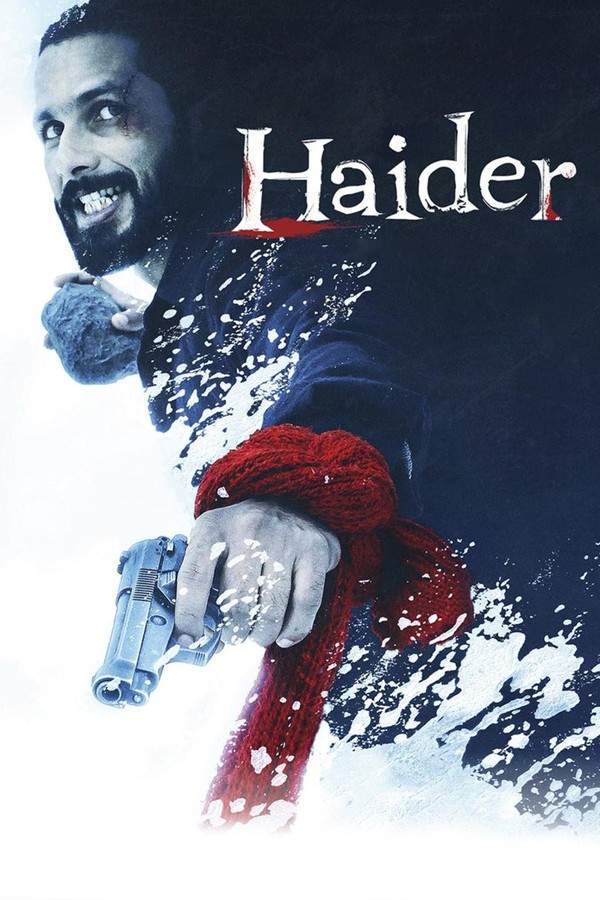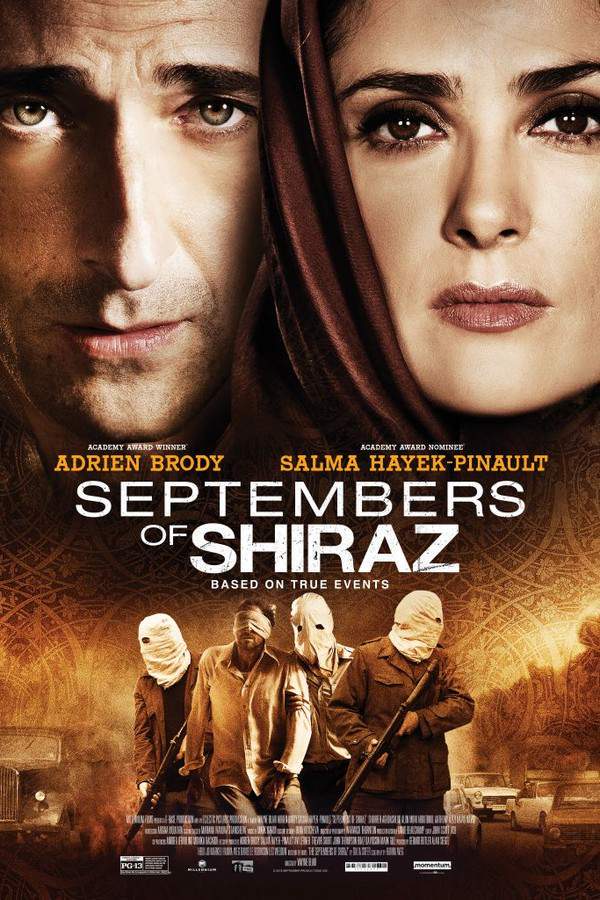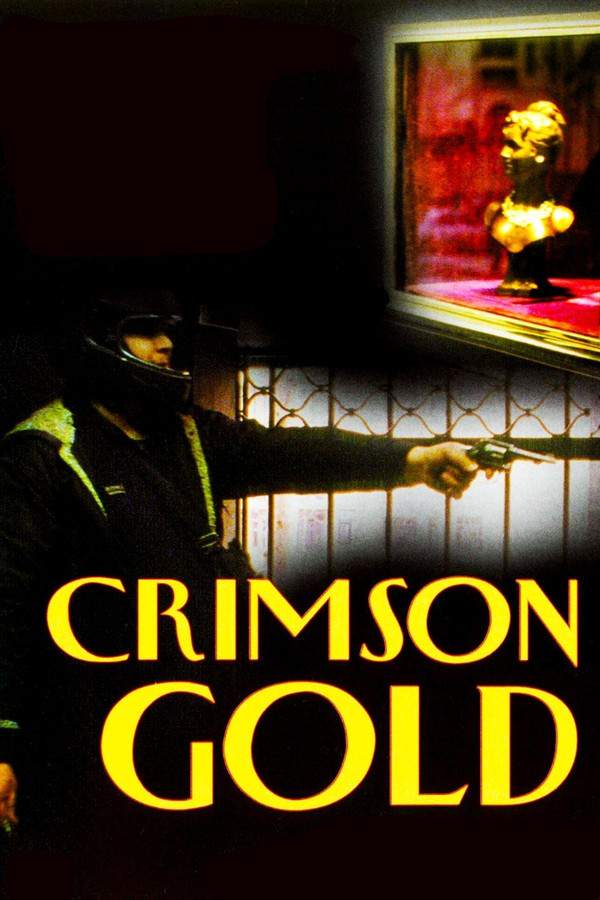
Crimson Gold 2003
Made by

Wellspring Media
Test your knowledge of Crimson Gold with our quiz!
Crimson Gold Plot Summary
Read the complete plot summary and ending explained for Crimson Gold (2003). From turning points to emotional moments, uncover what really happened and why it matters.
The film begins with a tense moment in a jeweler’s shop, where the lead character, Hossein, attempts to carry out a robbery. With a gun in hand, he tries to coerce The Jeweler into surrendering the safe key. However, the jeweler stands his ground, triggering an alarm in the process. In a fit of desperation, Hossein shoots the jeweler and, after a painful moment of contemplation, ends his own life. This shocking opening sets the stage for an exploration of Hossein’s troubled backstory.
Two days prior to this tragic event, we flash back to Hossein’s life before the robbery. His friend and accomplice, Ali, rushes to inform him that all is set for Hossein’s engagement to Ali’s sister, referred to as “The Bride” in the credits. As they converse, Ali reveals his recent pickpocketing success, pulling out a handful of modest items from a purse, including a slip that indicates a potential score of 75 million tomans from a jeweler’s shop. Their conversation piques the interest of a con artist known as “The Man in the Tea House,” who comments on the life of a thief, sharing the insight: > “If you want to arrest a thief, you’ll have to arrest the world.” This statement resonates with Hossein, who is deeply affected by the con artist’s dismissive attitude towards him and Ali’s clearly lower social standing. They attempt to visit the jeweler, but are turned away by The Jeweler himself.
As night falls, Hossein begins his job as a pizza delivery man. It’s evident he struggles with psychological issues stemming from his war experiences. His first delivery takes him to a former comrade, who generously tips him. The next stop leads to a block party in a wealthy area of Tehran, where police are present. Although unable to make the delivery, Hossein offers slices of pizza to police, soldiers, and detained guests, only gaining acceptance after the police chief takes a piece.
The following morning, Hossein, Ali, and The Bride dress elegantly and manage to enter the jeweler’s establishment. While in the shop, they admire luxurious jewelry far beyond their financial means, all the while waiting for their encounter with The Jeweler. When he finally appears, his patronizing demeanor is palpable as he recommends they pawn shop instead. Frustrated and offended by this treatment, Hossein takes The Bride home before returning to his own modest apartment, where he witnesses the police unfairly detaining an innocent man, further highlighting the disparity between the affluent and poor.
That evening, while on his delivery route, Hossein discovers the body of a fellow courier who has tragically died in an accident—a stark reminder of the dangers that come with their job. His next delivery is to The Rich Man, who resides in an affluent neighborhood. The stark contrast of lifestyles is further emphasized as Hossein is welcomed into The Rich Man’s luxurious apartment and indulges in its lavish features, including a swim and a shave. Amidst the grandeur, Hossein, consumed by alcohol, steps out onto the balcony, taking in the sprawling city below.
In a poignant twist, we return to the jeweler’s shop the next morning. This time, infused with anger and desperation, Hossein storms in with a gun, demanding the key to the safe amidst The Jeweler’s defiance. This leads directly back to the harrowing opening scene, where the emotional and physical toll of Hossein’s choices culminate tragically in his own demise.
Crimson Gold Timeline
Follow the complete movie timeline of Crimson Gold (2003) with every major event in chronological order. Great for understanding complex plots and story progression.
Attempted Robbery
The film opens in a jeweler's shop where Hossein, armed with a gun, attempts to rob The Jeweler. He confronts him, demanding the key to the safe, which escalates into a tense standoff that ultimately results in violence.
Tragic Decision
In a moment of desperation after shooting The Jeweler, Hossein reflects on his actions. The weight of his decisions overwhelms him, leading him to take his own life in a tragic climax of the opening sequence.
Flashback: Engagement Plans
Two days before the robbery, we flash back to Hossein's life where his friend Ali informs him about the engagement plans to Ali's sister, known as The Bride. Their conversation turns towards a potential big score at a jeweler’s shop, hinting at future events.
The Con Artist's Wisdom
During their discussion, a con artist, referred to as The Man in the Tea House, comments on the life of a thief. He suggests that to catch a thief, one must consider the larger world, leaving a profound impact on Hossein and hinting at his feelings of inferiority.
Failed Visit to the Jeweler
Hossein and Ali attempt to visit the jeweler but are turned away, reflecting their lower social status. This rejection further intensifies Hossein's feelings of frustration and hopelessness.
Pizza Delivery Job
As night falls, Hossein takes up his job as a pizza delivery man. His first delivery to a former comrade reveals the psychological scars he carries from the war, a detail that underscores his troubled state of mind.
Encounter at the Block Party
During a delivery to a block party in a wealthier area, Hossein is initially unable to complete his task. He attempts to integrate with the police and soldiers, using food as a means to connect, highlighting the socio-economic divides.
Elegant Visit to the Jeweler
The next morning, Hossein, Ali, and The Bride dress elegantly to visit the jeweler. Their admiration for the luxurious jewelry starkly contrasts with their financial realities, culminating in a demeaning encounter with The Jeweler.
Frustration at the Jeweler
Upon meeting The Jeweler, Hossein and his companions face his condescending attitude. The encounter leaves Hossein upset, feeling belittled amidst the lavish surroundings he cannot afford.
Witnessing Injustice
After the disappointing encounter at the jeweler's, Hossein returns to his home and observes the police unjustly detaining an innocent man. This moment deepens his frustrations with societal inequalities and his own powerless situation.
Delivery Man's Dilemma
Later that evening, while on his delivery route, Hossein discovers the accident involving a fellow courier. This tragic reminder of the dangers associated with his job intertwines with his growing desperation.
Luxurious Encounter
Hossein's following delivery takes him to The Rich Man's high-end apartment. Experiencing the affluent lifestyle, he is momentarily captivated by the luxury, further highlighting the disparity between his life and that of the wealthy.
Consuming Desperation
In the lavish apartment, Hossein lets alcohol cloud his judgment as he relaxes in modern comforts. Stepping out onto the balcony, he reflects on his tumultuous life and the yearning for something greater amidst the sprawling city.
The Final Confrontation
The next morning, driven by anger and desperation, Hossein returns to the jeweler's shop. Armed and ready to take what he believes is his due, he confronts The Jeweler once again, setting the stage for the film's tragic conclusion.
Tragic Closure
The intense standoff at the jeweler's culminates in a heartbreaking repeat of earlier events. After demanding the safe key, the dire consequences of Hossein's choices echo throughout the scene, illustrating the tragic spiral of his life.
Crimson Gold Characters
Explore all characters from Crimson Gold (2003). Get detailed profiles with their roles, arcs, and key relationships explained.
Hossein
Hossein is a deeply troubled man wrestling with psychological scars from his experiences in war. His emotions fluctuate between love for his bride and desperation for a better life, ultimately leading him to crime. He embodies the struggles of the lower class and the desperation that can arise from feeling trapped in a socio-economic system.
The Jeweler
The Jeweler represents the affluent class and their obliviousness to the plight of the poor. His patronizing demeanor towards Hossein serves to exacerbate Hossein's frustration, ultimately triggering the tragic events of the film. He symbolizes the disconnect between the wealthy and the working class.
Ali
Ali is Hossein's friend and accomplice, who provides insight into the world of petty crime. He is seen as a loyal companion but is also limited by the same socio-economic constraints as Hossein. His ambitions sometimes outstrip his circumstances, reflecting the deeper issues of their societal environment.
The Bride
The Bride, as the symbol of hope and love for Hossein, represents the life he wishes to attain. Her presence is a reminder of his aspirations, contrasting with the backdrop of his destructive choices. She embodies the personal stakes involved in his tragic journey.
The Rich Man
The Rich Man serves as a symbol of privilege and the unattainable lifestyle that Hossein longs for. His luxurious lifestyle further emphasizes the disparity faced by Hossein and those in his socioeconomic class. He provides a stark visual contrast to Hossein's struggles.
Crimson Gold Settings
Learn where and when Crimson Gold (2003) takes place. Explore the film’s settings, era, and how they shape the narrative.
Time period
The film is set in a contemporary context, reflecting the current realities of urban life in Iran. It explores themes of class struggle and moral decay within a modern society, highlighting the challenges faced by individuals in a rapidly changing world.
Location
Tehran
Tehran, the capital of Iran, is a sprawling metropolis known for its vibrant culture, luxury, and deep social divides. The city presents a stark contrast between affluence and poverty, represented vividly in Hossein's experiences as he navigates through its wealthy neighborhoods. It serves as a backdrop for a story that critiques the socioeconomic disparities present within urban life.
Crimson Gold Themes
Discover the main themes in Crimson Gold (2003). Analyze the deeper meanings, emotional layers, and social commentary behind the film.
💰
Class Struggle
The theme of class struggle permeates the narrative as Hossein encounters various social classes throughout the film. His desperation drives him to commit crimes, influenced by the stark differences between his life and that of the affluent. The film critiques the social system that forces individuals like Hossein into a corner, illustrating the lengths one might go to in pursuit of wealth and dignity.
🕵️♂️
Desperation and Crime
Desperation highlights Hossein's journey from an ordinary life to committing robbery. Motivated by social pressure and emotional turmoil, his actions reflect the impact of societal neglect on individuals, leading them into crime as a means of survival. This theme explores how desperation can drive a person to irreversible choices.

Coming soon on iOS and Android
The Plot Explained Mobile App
From blockbusters to hidden gems — dive into movie stories anytime, anywhere. Save your favorites, discover plots faster, and never miss a twist again.
Sign up to be the first to know when we launch. Your email stays private — always.
Crimson Gold Spoiler-Free Summary
Discover the spoiler-free summary of Crimson Gold (2003). Get a concise overview without any spoilers.
In the humming streets of modern Tehran, an ordinary delivery route becomes a lens through which the city’s stark contrasts are revealed. Hussein, a pizza courier, weaves past bustling bazaars and sleek high‑rise avenues, his daily grind a silent commentary on the lives that pulse beneath the glittering façades of wealth. The urban landscape feels both intimate and overwhelming, its narrow alleys echoing with the promise of a better tomorrow while the towering luxury districts whisper of an unattainable world.
One seemingly mundane shift changes the rhythm of his life: a forgotten, opulent purse slips into his hands, its contents hinting at financial opportunities far beyond his modest earnings. The discovery awakens a restless ambition in him, a yearning for a future where scarcity no longer defines his choices. This subtle inciting moment teases the possibility of crossing the invisible line that separates the working class from the elite, setting the tone for a quiet yet relentless pursuit of security and status.
Around him, a small constellation of characters adds depth to his journey. Ali, his longtime friend and occasional accomplice, offers loyalty and a taste of street‑wise savvy, while the looming presence of a would‑be bride introduces the personal stakes of marriage and family expectations. An enigmatic figure known only as the “Man in the Tea House” drifts through their conversations, dispensing wry observations that frame the broader social commentary: a world where the rules of thievery and survival blur beneath the surface of everyday life.
The film’s atmosphere balances gritty realism with moments of unexpected elegance, painting Tehran as a character in its own right—simultaneously oppressive and beautiful. Through hushed dialogue, lingering shots of night‑lit balconies, and the rhythmic hum of traffic, the story immerses the audience in a world where hope flickers against the backdrop of stark inequality, leaving us to wonder just how far one ordinary man will go to rewrite his destiny.
Can’t find your movie? Request a summary here.
Movies with Similar Twists and Themes
Uncover films that echo the narrative beats, emotional arcs, or dramatic twists of the one you're exploring. These recommendations are handpicked based on story depth, thematic resonance, and spoiler-worthy moments — perfect for fans who crave more of the same intrigue.
Featured on this page

What's After the Movie?
Not sure whether to stay after the credits? Find out!
Explore Our Movie Platform
New Movie Releases (2026)
Famous Movie Actors
Top Film Production Studios
Movie Plot Summaries & Endings
Major Movie Awards & Winners
Best Concert Films & Music Documentaries
Movie Collections and Curated Lists
© 2026 What's After the Movie. All rights reserved.


